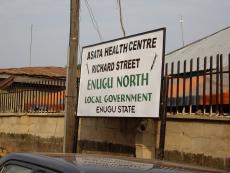Project 5: Access
 Project Title
Project Title
| An equity and cost-effectiveness analysis of alternative strategies for the deployment of ACT at the community level |
Project Location(s)
|
Enugu and Udi, Enugu State, Nigeria & Yaoundé and Bamenda district, Cameroon |
Lead Principal Investigator
|
Dr. Virginia Wiseman, LSHTM Dr. Wiseman is a senior lecturer in the Health Policy Unit at LSHTM and has over 15 years experience working as a health economist in developing countries. During this time she has led and consulted to several cost-effectiveness studies on malaria prevention and treatment in Africa. These include a cost-effectiveness analysis of combination treatment for malaria in Tanzania (2007); a cost-effectiveness analysis of insecticide-treated net distribution as part of the Togo Integrated Child Health Campaign (2006); a cost-effectiveness analysis of a nationwide social marketing ITN programme in Malawi (2005) and; a cost-effectiveness analysis of permethrin-treated bednets in western Kenya (2003). She has published widely and regularly consults to the World Bank, Institute of Medicine and World Health Organization. Virginia is also a support Member for the Technical Review Panel on Malaria for The Global Fund. |
Other Principal Investigators
| Dr Wilfred Mbacham, University of Yaounde, Cameroon
Dr Obinna Onwujekwe, College of Medicine, University of Nigeria |
Research Aim(s)
| Access; Targeting |
Project Background and Rationale
|
A number of recent reviews have shown that the quality of treatment prescribed to febrile children in public health facilities is generally poor, with low levels of adherence to national guidelines, the frequent selection of non-recommended antimalarials, and the use of incorrect dosages. Deficiencies in the practices of both private and public providers compromise the effectiveness and cost-effectiveness of malaria-case management and have led to calls for a variety of interventions to improve the quality of treatment and advice given. This study evaluates the cost-effectiveness and equity implications of interventions designed to improve provider knowledge and practice in delivering ACTs. Intervention design is an objective of this study (see below) but may include training providers, provision of job aids, assistance in business processes (e.g. stock rotation), re-packaging ACTs, patient information, improving relationship with wholesalers, etc. Two different types of provider will be evaluated (primary health centres, and pharmacies/drug retailers) at four study sites across Nigeria and Cameroon. |
Current Status of Project
|
Data collection is complete. Data entry and analysis is underway. |

